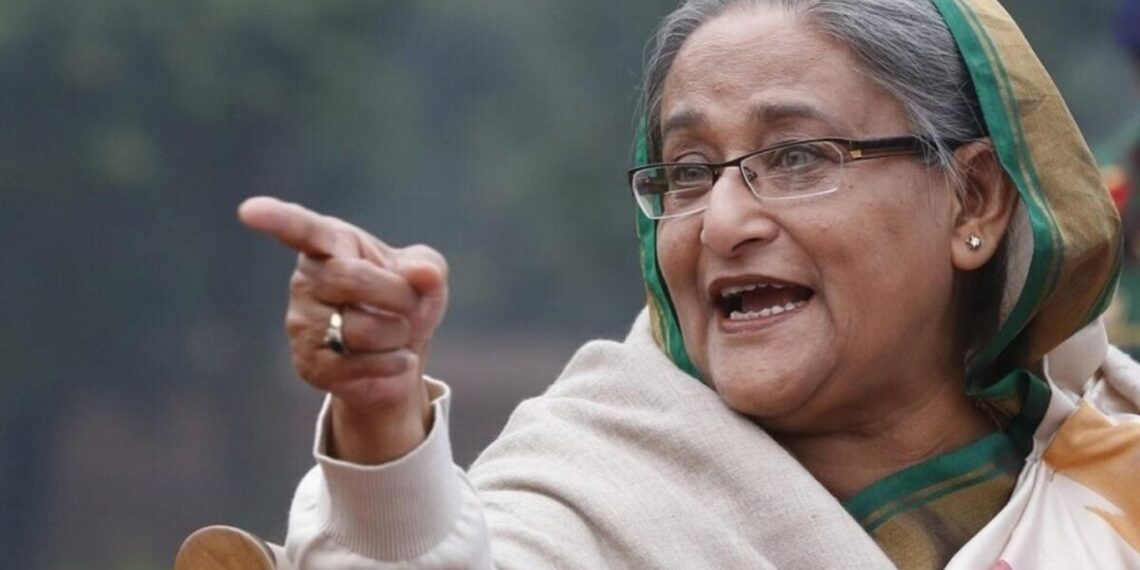Dhaka/New Delhi: Bangladesh’s interim government has officially requested India for the extradition of former Prime Minister Sheikh Hasina, a move that is likely to escalate tensions between the two neighbouring nations.
The diplomatic request was conveyed through a formal note on Monday.
India confirmed the receipt of the communication, described as a ‘note verbale’ from the Bangladesh High Commission in New Delhi.
However, Indian officials declined to comment on the matter at this time.
Touhid Hossain, Bangladesh’s de facto foreign minister, stated that Dhaka seeks Hasina’s return to face legal proceedings.
ALSO READ: Bangladesh’s Advisor Law Asif Nazrul forgets history of Liberation War
“We have sent a note verbale to the Indian government requesting that she be extradited for judicial purposes,” Hossain told the media in Dhaka.
Randhir Jaiswal, spokesperson for India’s Ministry of External Affairs, confirmed that the note verbale had been received.
“We confirm that a Note Verbale from the Bangladesh High Commission was received today in relation to an extradition request. At present, we have no further comments,” he said.
Hasina, 77, has been residing in India since August 5, after fleeing Bangladesh following widespread protests led by students that resulted in the fall of her 16-year government.
The Bangladesh-based International Crimes Tribunal (ICT) has issued arrest warrants for Hasina, along with several former cabinet members and military figures, on charges of genocide and crimes against humanity.
The request for Hasina’s extradition comes amid growing diplomatic tensions between India and Bangladesh, especially after the interim government of Muhammad Yunus took power.
India has expressed concerns about the increasing violence against minorities, particularly Hindus, in Bangladesh under the current administration.
ALSO READ: Bangladesh: Not a happy country these days
Earlier on Monday, Jahangir Alam, Bangladesh’s Home Adviser, confirmed that a letter had been sent to the foreign ministry to begin the process of Hasina’s extradition.
“We have dispatched a letter to the foreign ministry to facilitate her extradition. The process is currently underway,” Alam said, emphasising that an extradition treaty exists between the two countries.
In a public address earlier this year, Bangladesh’s Chief Adviser Yunus had indicated that the country would pursue Hasina’s extradition, citing the need for justice for those killed during the protest violence.
Yunus also claimed that more than 1,500 people were killed and around 20,000 were injured during the protests against Hasina’s government.
In a recent interview, Yunus had criticized Hasina for making political remarks from India, calling them an “unfriendly gesture” and urging her to remain silent to avoid further diplomatic friction.
In response, Hasina has accused Yunus’s interim government of committing “genocide” and failing to protect religious minorities, particularly Hindus, since her removal.
ALSO READ: India raises alarm over targeted violence against Hindus and other minorities in Bangladesh
Attacks on religious minorities have been on the rise in Bangladesh in recent months.
India’s Foreign Secretary, Vikram Misri, visited Dhaka two weeks ago to express India’s concerns about the safety of minorities in Bangladesh, stressing the importance of safeguarding vulnerable groups.
















